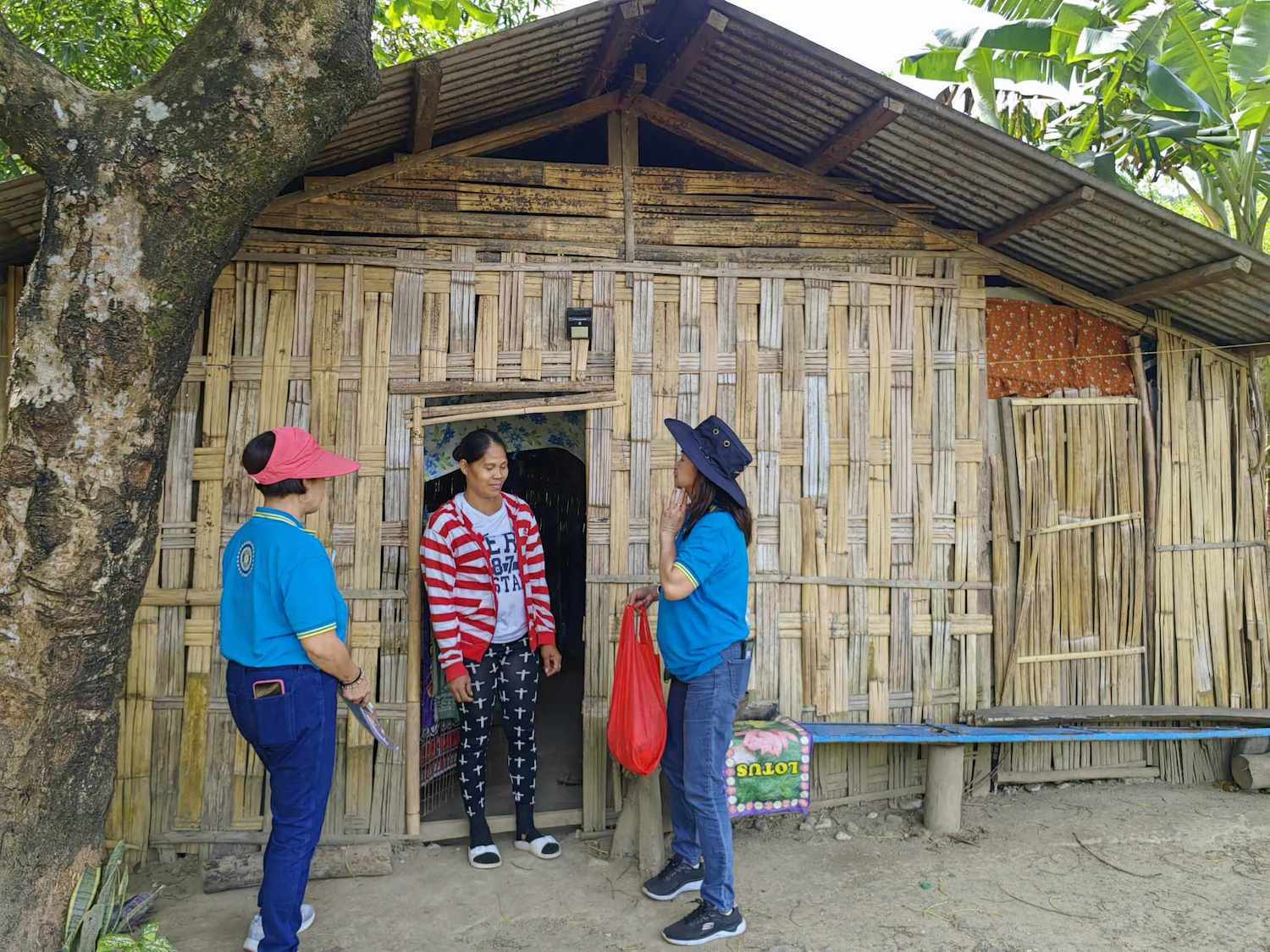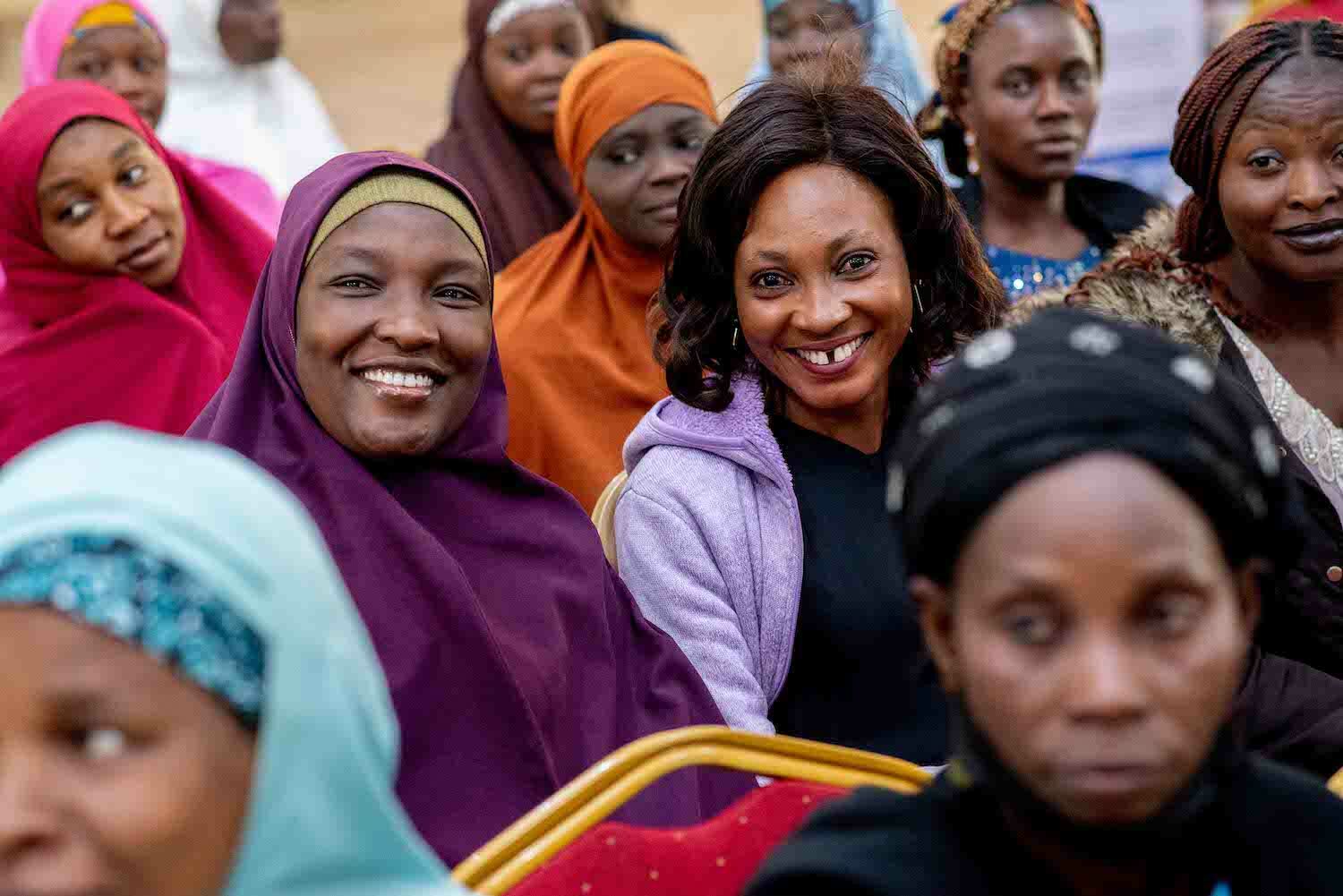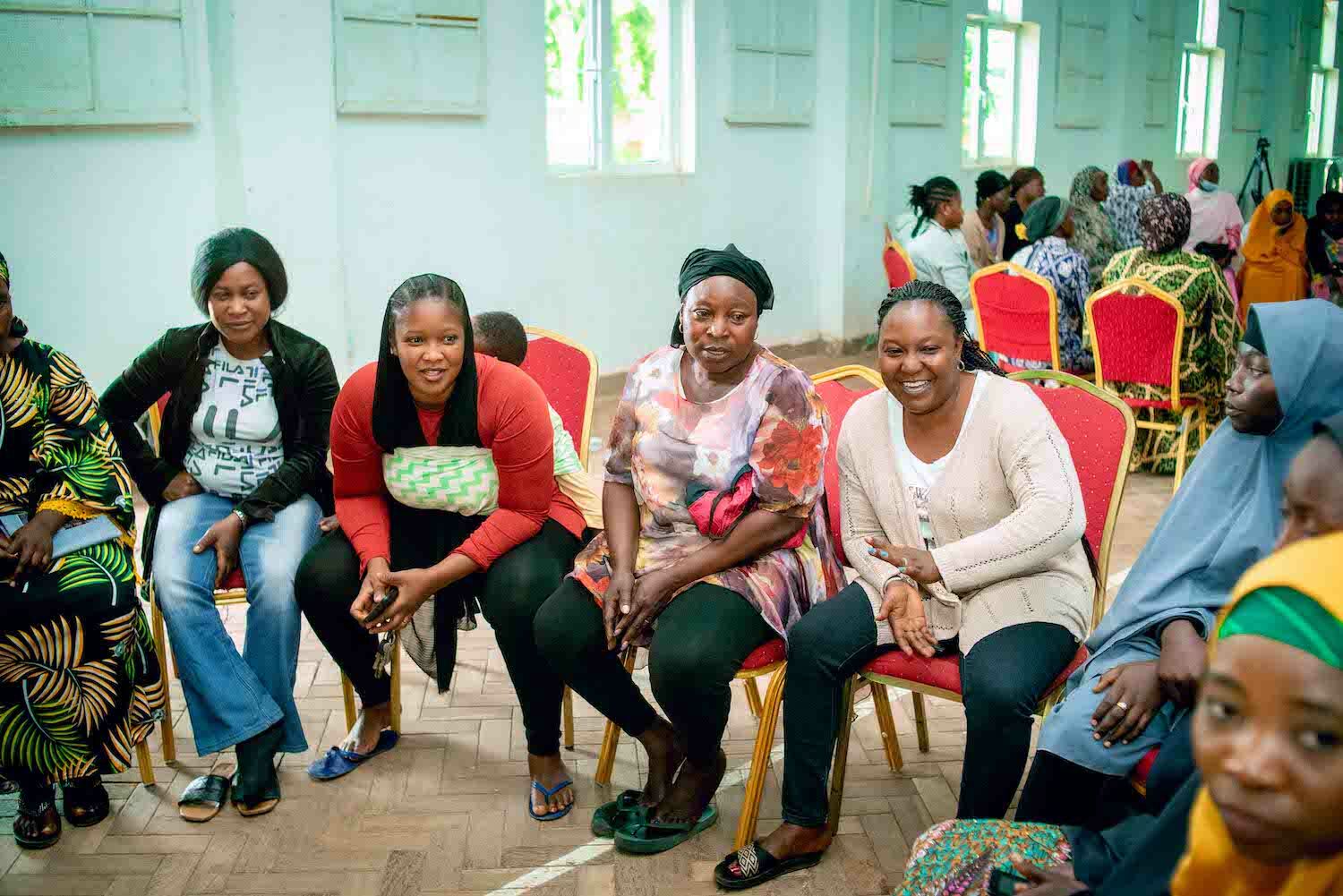The Global Peace Leadership Conference 2018 East Africa/Great Lakes Region hosted in Kampala, Uganda, highlighted the potential of African countries as models of peacebuilding and sustainable development.
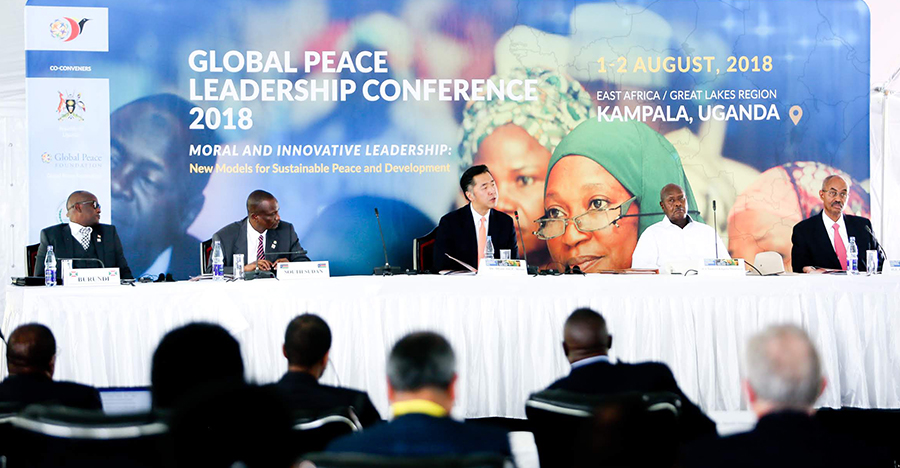
From left: H.E. Gaston Sindimwo, First Vice President, The Republic of Burundi; H.E. Salva iir Mayardit, President, The Republic of South Sudan; Dr. Hyun Jin P. Moon, Founder & Chairman, Global Peace Foundation; H.E. President Yoweri Museveni, President, The Republic of Uganda; Dr. Amani Abeid Karume, former President Zanzibar
More than a thousand regional and international educators, business leaders, clerics, presidents, parliamentarians, plus civil society and youth leaders from 16 countries including the United States, India, Nigeria, South Korea, Tanzania, and Kenya, examined critical regional and national factors to achieving peace and prosperity.
The two-day conference held on August 1-2 was co-convened by the Republic of Uganda, the Global Peace Foundation, the Intergovernmental Authority on Development, the Inter-religious Council of Uganda, and the Private Sector Foundation Uganda.
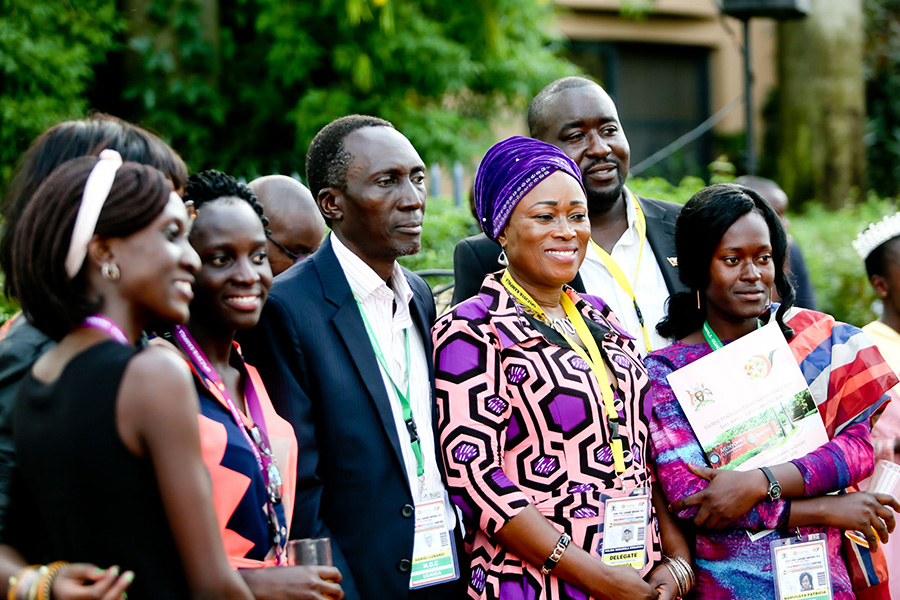
Thousands gather in Kampala for the 2018 Global Peace Leadership Conference
Through roundtables, plenary sessions and breakout sessions, the conference explored innovative approaches in key areas of Transforming Education, Interfaith Peacebuilding and Prevention of Identity-based Conflict, Women-led Initiatives for Peace and Development, Entrepreneurship and Investment as Catalysts for Peace and Development, Youth Leadership, Entrepreneurship and Service.
In his opening remarks, Uganda Prime Minister Dr. Ruhakana Rugunda reflected on the timeliness of the conference theme, “Moral and Innovative Leadership: New Models for Sustainable Peace and Development.” “It echoes the urgent call for countries to build consensus on responses towards pressing regional challenges guided by a shared vision, principles, aspirations, and innovative value-based approaches to peace building, security and development.” The Global Peace Leadership Conferences (GPLC) is a strategic summit for experts, policymakers, and civil society leaders, to build consensus on effective responses to urgent challenges based on a framework of shared vision and values.
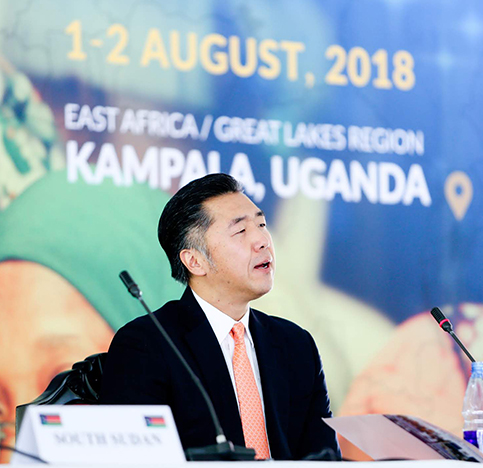
GPF Founder and Chairman Dr. Hyun Jin P. Moon speaks at the 2018 GPLC in Uganda
In his keynote at the High-Level Plenary for heads of state and representatives from East African nations, including South Sudan, Kenya, Tanzania and Uganda, Dr. Hyun Jin Preston Moon, founder and chairman of the Global Peace Foundation, acknowledged the potential of Africa, while calling for moral and innovative leadership in all levels of society as Africa takes the lead in pioneering new approaches peace and development.
“Africa is a continent vibrant with possibilities. There is vast potential in your great resources, a noble, spiritual and cultural heritage, and a large youth population yearning for a future of peace and prosperity,” he said. “To tackle the obstacles before us that undermine peace and development we need, at every level – from the highest echelons of government to the smallest village community – leadership that is both moral and innovative.”
H.E. President Yoweri Museveni of Uganda, and honorary chairman of the conference, was awarded the Global Peace Leadership Award, recognizing his leadership in peace efforts in the Great Lakes Region and beyond. In his acceptance remarks, he gave recognition to the people of Uganda for their collective efforts to build peace in the region, “This recognition is for all Ugandans.”
The conference featured a special Parliamentary Session, at which national legislators addressed the challenges and opportunities in peace and development in Africa and the world. The session brought together Korean and African leaders to discuss common concerns such as the prospects of peaceful reunification of the Korean peninsula and developing new models of sustainable economic development.
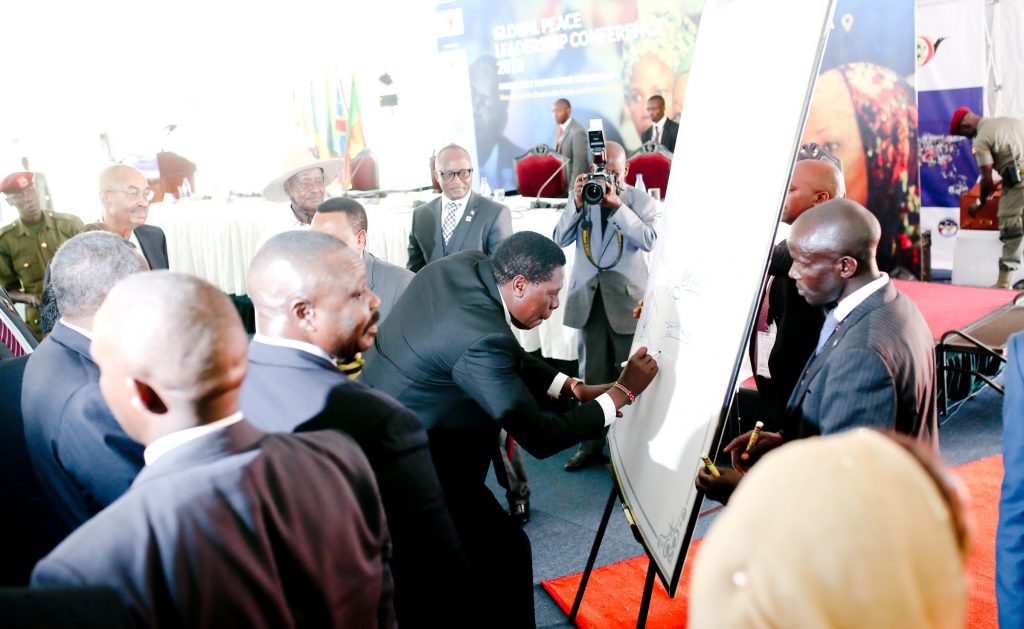
Signing of the Kampala Peace Declaration
Also highlighted was the One Family Under God Peacebuilding Campaign, a project of GPF Nigeria now in its fifth year that engages religious and spiritual leaders and civil society partners to counter violent extremism and foster community-level social cohesion through partnerships and grassroots programs that stress universal principles and shared values. The campaign brings together Muslim and Christian leaders and traditional rulers to reconcile religious and ethnic divisions by drawing on the respect and authority of faith leaders to uphold values deeply embedded in faith traditions.
The Kampala Peace Declaration, signed at the close of the conference, cited the conference outcomes and ongoing programs and partnerships to advance peace and development towards the UN 2030 Agenda for peace and development.
The conference highlighted five important tracks including:
- Transforming Education
- Interfaith Peacebuilding and Prevention of Identity-based Conflict
- Women-led Initiatives for Peace and Development
- Entrepreneurship and Investment as Catalysts for Peace and Development
- Youth Leadership, Entrepreneurship and Service
View the full gallery here.
Global Peace Foundation in Africa
Highlighted during the conference were many of Global Peace Foundation’s emerging models for peacebuilding and development.
Mitigating Post-Election Violence in Kenya

The Global Peace Foundation has been active since 2008. It entered Kenya during the height of post-election violence where it helped facilitate on-the-ground, community-driven resolution. GPF has been credited directly for mitigating the outbreak of post-election violence during succeeding presidential elections.
Character and Creativity Initiative to Transform Education and Empower Youth
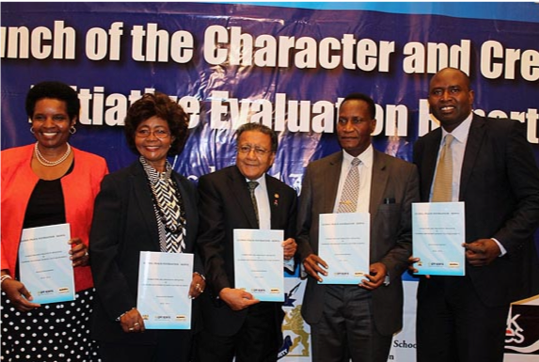 Two years later, the Global Peace Convention 2010 was held in Nairobi, Kenya, under the patronage of President Kibaki and Prime Minister Odinga, both from formerly conflicting tribes. This launched the Character and Creativity Initiative, a comprehensive effort to develop moral aptitude, creativity and leadership of youth. A ground-breaking study implemented by researchers from the Kenya Institute for Public Policy Research and Analysis (KIPPRA) of the initiative found that nurturing character and creativity not only improves academic performance and culture but also reduces social problems such as violence, bullying and substance abuse in the schools. Since its launch in 2010, CCI has been implemented in eight other nations around the world, including Malaysia, Nepal, and Paraguay.
Two years later, the Global Peace Convention 2010 was held in Nairobi, Kenya, under the patronage of President Kibaki and Prime Minister Odinga, both from formerly conflicting tribes. This launched the Character and Creativity Initiative, a comprehensive effort to develop moral aptitude, creativity and leadership of youth. A ground-breaking study implemented by researchers from the Kenya Institute for Public Policy Research and Analysis (KIPPRA) of the initiative found that nurturing character and creativity not only improves academic performance and culture but also reduces social problems such as violence, bullying and substance abuse in the schools. Since its launch in 2010, CCI has been implemented in eight other nations around the world, including Malaysia, Nepal, and Paraguay.
One Family Under God Campaign: Community-Driven Peace and Development Initiative
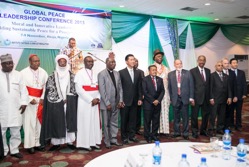
The Global Peace Leadership Conference was held in Abuja Nigeria in 2013. Nigeria is deeply religious, but divided evenly between Muslims and Christians. Internal conflict has often been along lines of religious identity. The GPLC served as a platform for faith leaders, policy experts and public and private representatives to formulate and launch the One Family under God campaign, a grassroots campaign led by faith leaders and traditional rulers to resolve
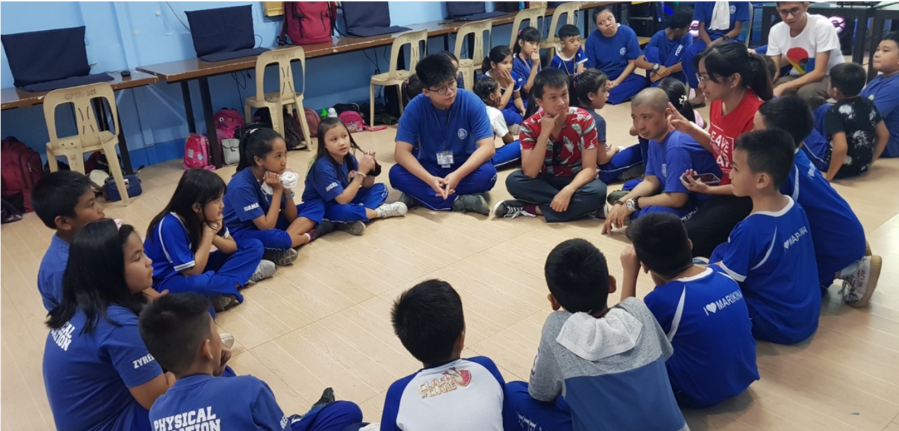
identity-based conflict and foster community development. The initiative, now in its fifth year of implementation has spread by the endorsement of local communities who have successfully used the program to reduce mistrust and strengthen community engagement as they look towards building shared communities of peace and prosperity. Its results and best practices have been studies and shared internationally as far as Ireland and the United States.
Efforts for Countering Violent Extremism and Youth Empowerment
The Global Peace Leadership Conference in 2015 in Zanzibar, focused on regional peace and youth development and launched the African Leadership Mission. It also was the start of ongoing initiatives to engage youth in positive community work and leadership development as a way to counter violent extremism.
Moral and Innovative Leadership for National Transformation
The 2018 Global Peace Leadership Conference highlighted GPF’s track record and substantive results in comprehensive approaches to challenging issues like identity-based conflict, economic development, youth empowerment, and peacebuilding. Organized with broad support from the government of Uganda, regional intergovernmental bodies and civil society, the conference emphasized GPF’s values-based approach as a solution to the most challenging issues facing the region.
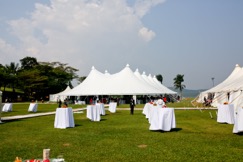
2018 Conference Outcomes
The Kampala Peace Declaration, signed at the close of the conference, cited the conference outcomes and ongoing programs and partnerships to advance peace and development towards the UN 2030 Agenda for peace and development.
The conference drew media attention from across Africa, from Kenya to Nigeria. Korean media also published stories highlighting the role of Korea in working African nations to build locally driven global economies. Social media platforms engaged a worldwide audience that included Heads of State and national media outlets, as well as civic and faith leaders.

